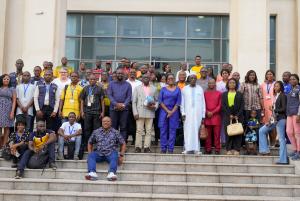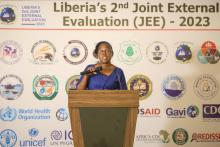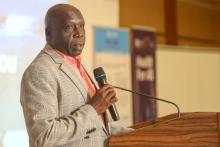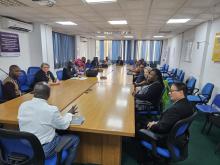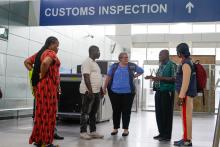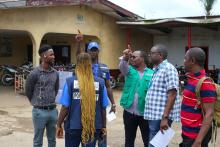Liberia successfully concludes her second Joint External Evaluation with a Commitment to strengthen National and Global Health Security.
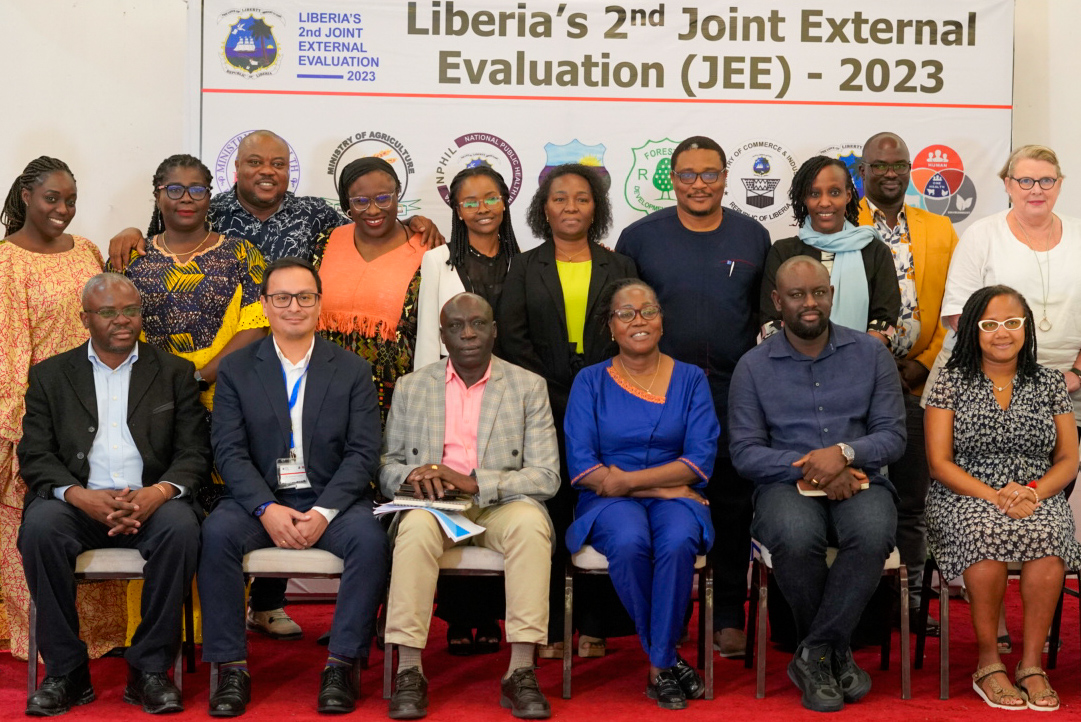
Monrovia, September 10, 2023 – The Ministry of Health, Ministry of Agriculture, and the Environmental Protection Agency in Liberia, with valuable support from esteemed partners including the World Health Organization (WHO), the World Bank, FAO, UNICEF, USAID, US CDC among others, successfully concluded a five-day workshop from September 4th to September 8th, 2023. This workshop marked the second round of the Joint External Evaluation (JEE) of Liberia's International Health Regulations (IHR) core capacities, utilizing the cutting-edge JEE 3.0 tool.
Liberia's commitment to health security led the nation to voluntary undertake the second JEE embracing the revised JEE 3.0 tool thus becoming 9th country in the WHO Africa region, following Sierra Leone, Tanzania, Nigeria, and Zanzibar, to conduct a second round JEE. This updated tool incorporates the lessons learned from the COVID-19 pandemic.
The workshop brought together over 200 participants, representing diverse sectors, including the Ministries of Health, Agriculture, Commerce and Industry, Foreign Affairs, Internal Affairs, Ministry of Justice (Liberian National Police, Bureau of Immigration and Naturalization, Fire Services), National Defence, National Public Health Institute of Liberia (NPHIL), Environmental Protection Agency, Liberia Airport Authority/Civil Aviation Authority, National Red Cross Society, and esteemed partners such as WHO, USAID, World Bank, US-CDC, FAO, UNICEF, IRC/PACS, IOM, AFANET, GIZ, IRC, Jhpiego/STAIP, and Riders for Health.
Dr. O-Tipo Shikanga, leading a team of 15 technical experts in external evaluation from the World Health Organization Zambia, stressed the pivotal role of the JEE outcomes. These outcomes will assist Liberia in identifying critical gaps in its human and animal health systems, facilitating the prioritization of opportunities for improved preparedness and rapid responses to public health risks.
"As a country, we have established a robust one-health platform capable of a multisectoral response to public health events. Our next steps will be guided by the recommendations from the 2023 JEE report," remarked Dr. Shikanga, Team lead of the 2023 Joint External Evaluation team.
He further urged the country to develop a five-year risk-based National Action Plan for Health Security (NAPHS), undertake resource mapping, and establish a robust monitoring and evaluation framework for NAPHS. These initiatives will comprehensively address the health security gaps identified by the second JEE, leveraging lessons from the COVID-19 pandemic and prior public health events in the country.
Representing the World Bank, Mr. Collins Chansa, the Senior Health Economist and Team lead for Health at World Bank Liberia country office, emphasized the critical timing of this exercise, coinciding with a review of the bank's support to Liberia. The results of the JEE will significantly influence the design of upcoming projects aimed at strengthening health security.
During the closing ceremony, the Honourable Minister of Health, Dr. Wilhemina Jallah, expressed her gratitude to the Evaluation experts and support from partners such as the World Bank and WHO throughout the JEE exercise. She further expressed satisfaction with the overall process, whose findings serve as a mirror of reality.
"The JEE has provided valuable insights into strengths and weaknesses of our systems. It is our collective responsibility to act on these findings by implementing the necessary reforms to strengthen our capacities, protect, and promote public health," narrated Dr. Jallah.
Dr. Jallah also encouraged transformative change, innovation, and collaboration for a healthier and safer future for Liberia.
“It’s our collective responsibility to cease this opportunity to foster transformative change, embrace innovation, and collaboration, for a healthier and safer Liberia”, said Dr. Jallah.
Liberia remains steadfast in building a resilient healthcare system capable of withstanding and responding to health threats while safeguarding the well-being of its citizens and neighbouring regions.
The WHO Representative expressed optimism and that the recommendations provided together with lessons learnt response to COVID-19 and from implementing the first National Action Plan for Health Security (NAPHS) will serve as a roadmap for future improvements, guiding the next five-year NAPHS in building a comprehensive resource mobilization plan to address identified gaps, as revealed through the exercise.
"Public health systems vary from one country to another. We need resources to act swiftly when public health emergencies arise—we should not wait; we need to strengthen our preparedness capacities. With commitment and dedication, most of the immediate, midterm and long term recommendations can be achieved promptly," stated Dr. Peter.
Dr. Peter emphasized the importance of a One Health approach and ensuring the one health steering committee become functional.
“The feedback from the evaluation team is very honest and clear on the One Health approach. We need to make the One Health steering committee functional holding quarterly or semester meetings to evaluate progress made, and bring all partners, the private and faith based institutions around the table will be critical, to be on the same page”, said Dr. Peter. “I also see opportunities from the WHO flagship programs, and the pandemic fund which Liberia should benefit from.”
In conclusion, he also thanked the government for undertaking this exercise as it is an opportunity to redirect the national health security agenda in the right direction, and partners, remain committed to providing the necessary support.
This evaluation measures Liberia's progress made in addressing the first JEE recommendations, investments in health security following the Ebola outbreak and during the COVID-19 pandemic, as well as identifying new areas for improvement. This proactive stance is essential in preventing, detecting, and rapidly responding to public health threats in the face of global challenges such as climate change, conflicts, displacements, natural and man-made disasters. Liberia's commitment to enhancing IHR core capacities aligns with the goal of improving health and well-being for all, a pivotal pillar for sustainable development and achieving SDG 3 by 2030.
Liberia, a signatory of the IHR (2005), remains dedicated to its commitments under the IHR Monitoring and Evaluation Framework, including mandatory States Parties Annual Reporting (SPAR) and the voluntary Intra and After Action Reviews (IAR/AAR), Simulation exercises, and Joint External Evaluations (JEE). These mechanisms assess the country's specific status and progress in developing the required IHR capacities to prevent, detect, and rapidly respond to public health threats.
